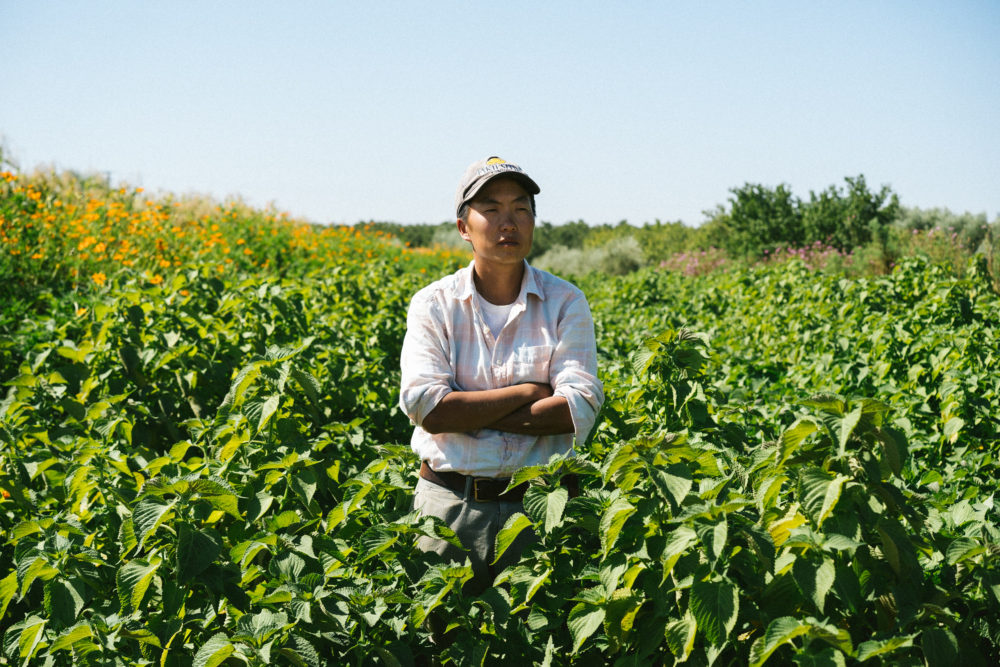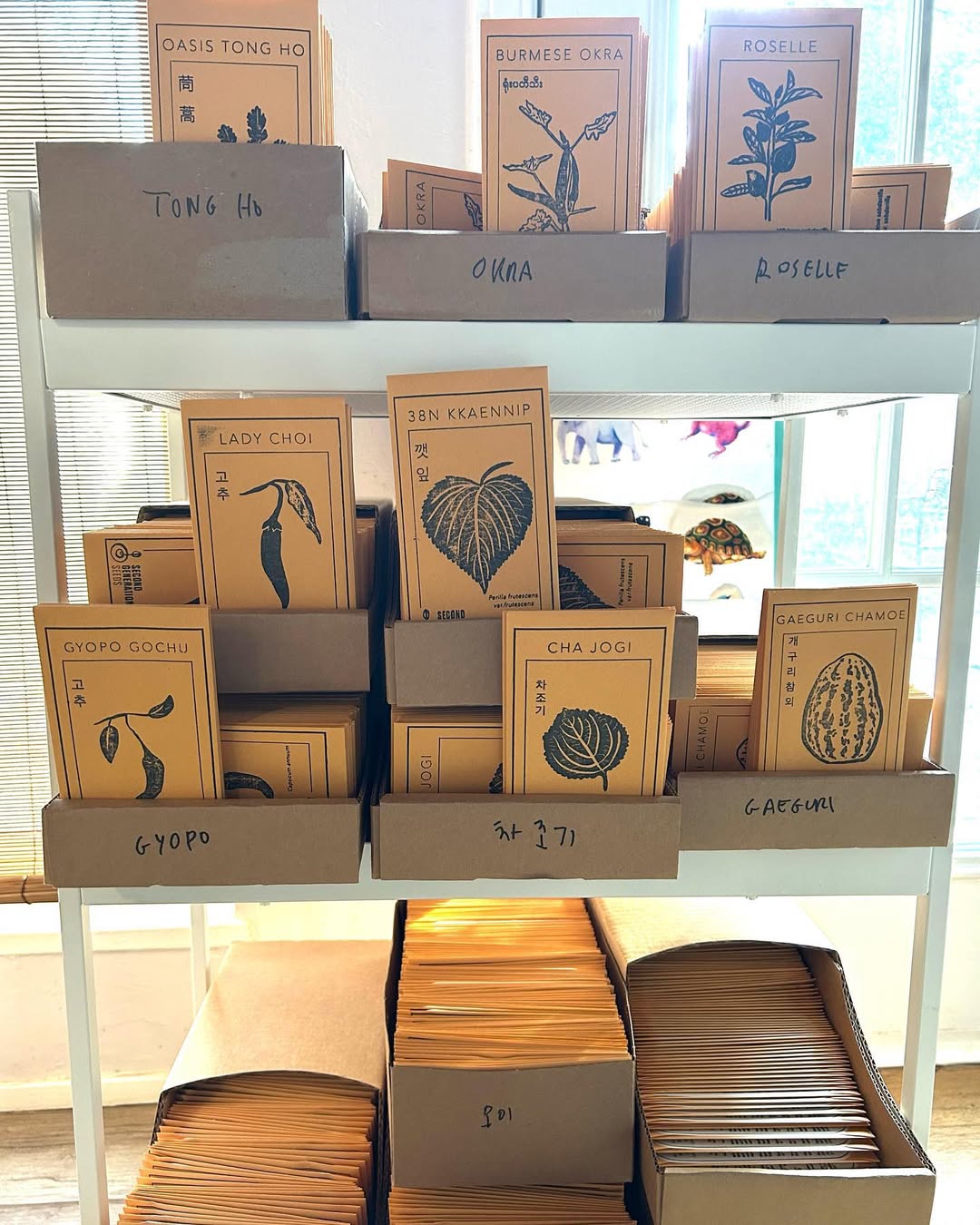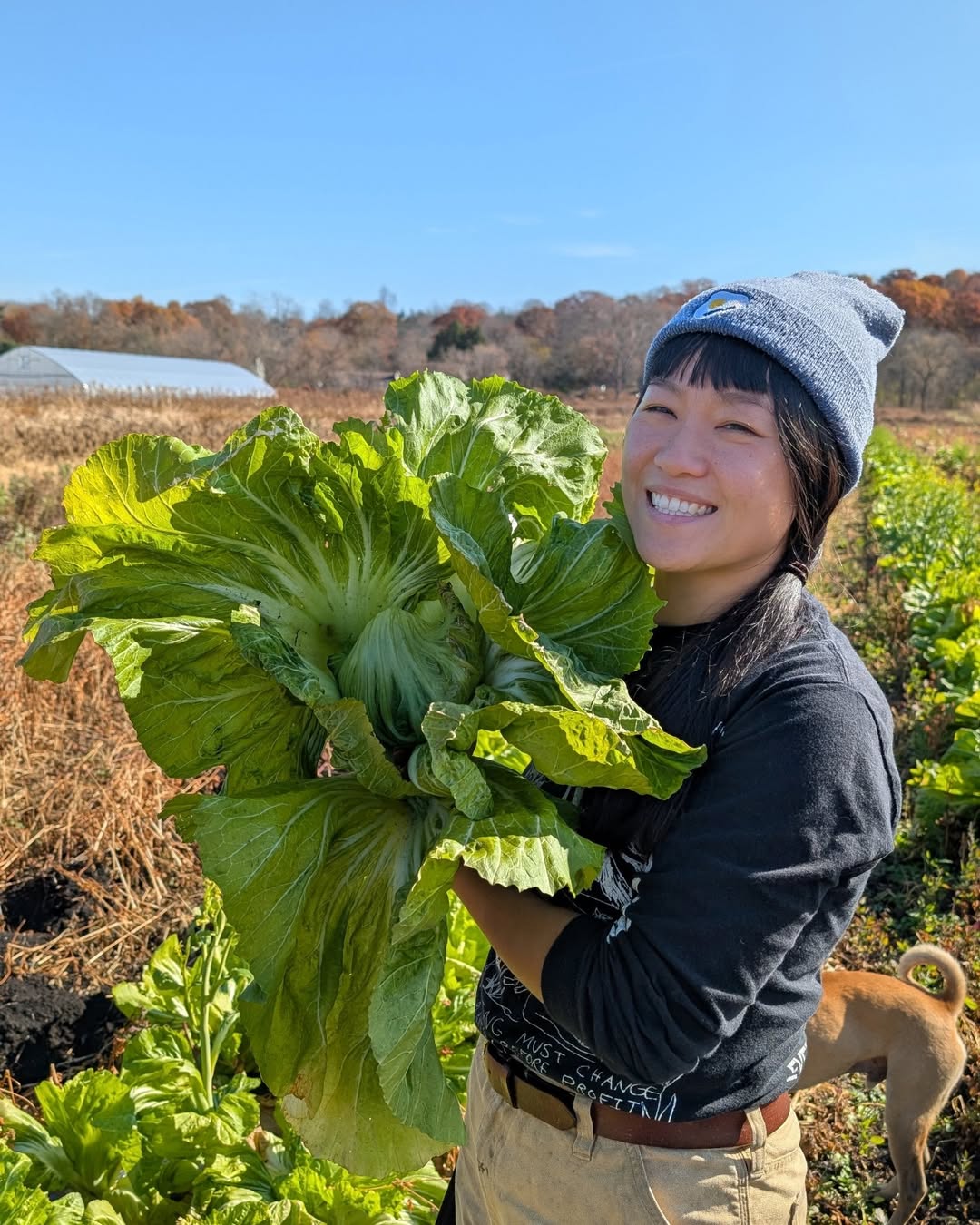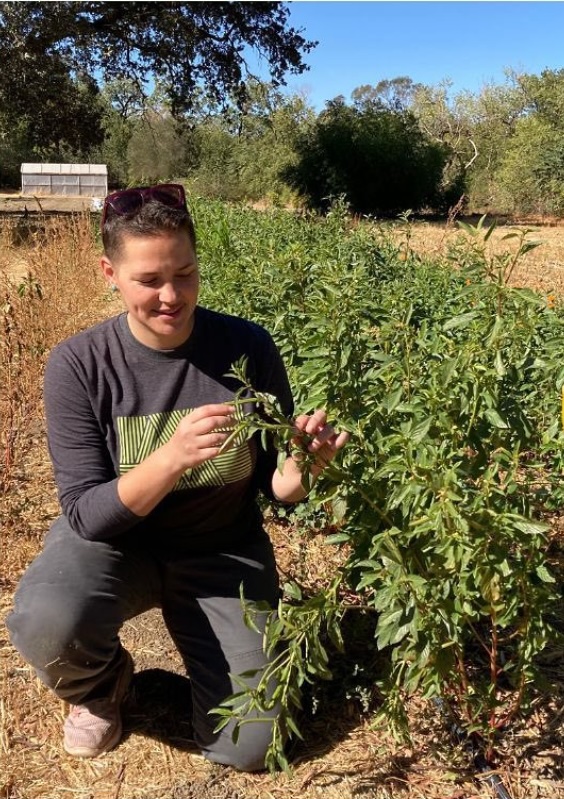
Growing up in the early aughts, California farmer Scott Chang-Fleeman saw firsthand how small seed companies got gobbled up by massive conglomerates. Today, just four companies — Bayer, Syngenta, BASF and Corteva — own two-thirds of the world’s seed and pesticide industry. By monopolizing patents for certain seeds, these companies prevent other farmers from breeding and exchanging them, suing those who do.
“Seeds are a major part of the agricultural economy that often get overlooked,” Chang-Fleeman, 30, said. “Just like how people shop at farmer’s markets to support local farms, I hope that they start to see seeds in the same way.”
Chang-Fleeman is growing seeds that aren’t patented, like the Japanese momotaro tomato, a heat-tolerant dark-pink fruit with a concentrated sweetness. His goal is to not only make these seeds available to other farmers, it’s also to adapt them to the current climate crisis and tap into age-old farming traditions by replicating plots and rotating crops to test millenary breeding methods.

His work is a collaborative effort with Second Generation Seeds, a collective of dozens of Arab and Asian American farmers who are growing ancestral plants and adapting them for various climates to develop a seed economy led by small farmers. Its fellowship program supports farmers from New York to Hawaii with skill-sharing workshops, financial assistance and technical guidance. The collective’s mission is to grow a decentralized seed network to service consumers and small farms, and ensure that so-called heritage plants can acclimate and survive in the 21st century. So far, they’ve successfully grown and sold 16 heritage seed varieties through their online seed shop, selling out their offerings every season.
Founder Kristyn Leach said that preserving and adapting ancestral crops from Asia and North Africa to U.S. soil is a powerful symbol of survival. “By saying that we will help our plants evolve, we’re liberating people from the sense that preservation has to be rooted in trauma or fear,” she said.
Adapting seeds for new climates
As the agricultural industry, climate change and war threaten our global biodiversity, growing “culturally significant” crops has become more important than ever, according to the collective. However, our modern farming systems have homogenized plant breeds through pesticide use and genetically modified crops that often involve habitat destruction.
Meanwhile, the rapid consolidation in the industry has created huge monopolies. According to Leach, Bayer, Corteva and Syngenta currently own patent rights to 95% of corn and 84% of soybean varieties, which have been grown by Native cultures in the Americas and East Asia for millennia. “To them, it’s just an apparatus to sell more fertilizer, herbicide and pesticide,” she said. “Wholesale seed contracting is a numbers game, and they have the scale.”

As they face these harsh odds, the number of farms run by people of color has remained stagnant for the past 20 years. A survey of young BIPOC farmers found that purchasing affordable land and access to capital are the top challenges for starting a farm; they receive only 1% of the government’s commodity loans.
Christina Chan, a farmer in New York’s Hudson Valley, is an example of how small Asian American farmers need peer support in the current landscape. “New York City has a huge Asian population, but there aren’t many organic, culturally relevant farms around,” Chan said.
She started Choy Division Farms in 2020 after spending three weeks on Leach’s farm in Sebastopol, California. That was where she first learned how to steward and save seeds. “It was formative being able to work with another Asian farmer. It showed me that the path was possible for me,” she said.
But extreme weather has presented multiple challenges during Chan’s five seasons of farming. When New York faced its first drought in two decades this fall, it threatened to overheat her crops. Last summer, she dealt with the lingering smoke from Canada’s wildfires, which kept the skies cloudy for weeks and delayed the maturation of her crops.
For Chan, the increasingly unpredictable extreme weather events mean a greater need to diversify crops. “I’m trying to grow more vegetables from many East Asian cultures,” Chan said. “My greatest point of pride is whenever someone’s parents tell me that they’ve been reminded of home.”
One of the crops she’s breeding is the ping tung eggplant, a Taiwanese variety that can be harvested year-round and thrive in a range of climates. She developed a multiyear plan with Second Generation Seeds to select the most colorful and vigorous eggplants and sell their seeds.
During its first season, her eggplants were struck with four different soil diseases, and only one-fourth of her crop survived. But Chan wasn’t deterred. She managed to save seeds from the plants that were healthy. “Hopefully, that means the ones that did make it out are stronger,” she said.
Bringing community together through ancestral crops
Farmer Nadia Barhoum comes from a long line of fellaheen, or agricultural laborers, who found ways to grow native plants even after being expelled from their West Jerusalem village of Al Manha. “They only had a tiny plot of land in their Bethlehem refugee camp, but every inch of it was growing with herbs and citrus trees,” she said.
Visiting her family in the West Bank ignited a fire to start growing Palestinian fruits and vegetables, and she enrolled in farm school at UC Santa Cruz in 2019. “Being that I can’t return to my homeland, this was the only way to connect to my ancestors,” she said.

Last year, Barhoum joined Second Generation Seeds and began planting varieties of vegetables from Palestine that were difficult to find in California. She harvested kousa squash, jute plants, eggplants, cucumbers and watermelon, saving hundreds of seeds from each variety.
“Seeds are so precious, and they tell so many stories,” Barhoum said. “You get to feel the many hands that have worked for millennia so that you can hold them today.” A few months ago, Barhoum hosted an event with the watermelon she grew at Leach’s farm. Friends and family from the Palestinian, Iranian and Afghan communities helped harvest the watermelon in the field, then joined her in the barn to cut the fruit and share the seeds. “The only thing that feels like healing right now is to be in an embodied community where we can be in remembrance,” Barhoum said.
Second Generation Seeds will soon expand across the country. Next year, Leach plans to establish regional hubs in the Northeast and the Pacific Northwest, as well as a cultural hub for Hmong farmers in California’s Central Valley to receive monetary and technical resources. Leach is also busy setting up Gohyang Seed Campus, welcoming farmers to an 8-acre farm to develop their seed production of heritage plants at scale — an in-person, immersive version of the virtual Seed Fellows program. She wants to build a robust seed economy by Asian Americans, for Asian Americans. “The seed campus is designed to offer economies of scale for smaller growers, so that we can devote our energy to the seed itself,” Leach said.
She noted that almost everyone’s ancestors were farmers, and that plant breeding is the oldest technology in the world. She said farmers have always developed heat and drought tolerance in seeds using “old-school” breeding methods. “In this time of urgency, we need to look back and realize that the reason why we had a flourishing of biodiversity is because people took something and made it their own,” Leach said. “Our ethos is that culture is not just rooted in our memory, but our imaginations.”



